
Building Blocks of Communication: Nurturing Communication Skills in Toddlers
Building Blocks of Communication: Nurturing Communication Skills in Toddlers
Communication skills are vital for toddlers as they navigate the world around them and interact with others. From expressing their needs to forming connections, effective communication lays the foundation for their social, emotional, and cognitive development. In this blog, we will explore the importance of communication skills in toddlers, discuss their benefits, and provide practical strategies to help nurture and strengthen these skills during this crucial stage of early childhood.
Communication skills play a crucial role in a toddler's development as they learn to express themselves, understand others, and engage in meaningful interactions.
Here are some important communication skills that toddlers typically develop during their early years:
1. Vocabulary Expansion:

Toddlers rapidly expand their vocabulary during this stage. They acquire new words and start using them to label objects, express their needs, and communicate their thoughts and feelings.
2. Non-Verbal Communication:
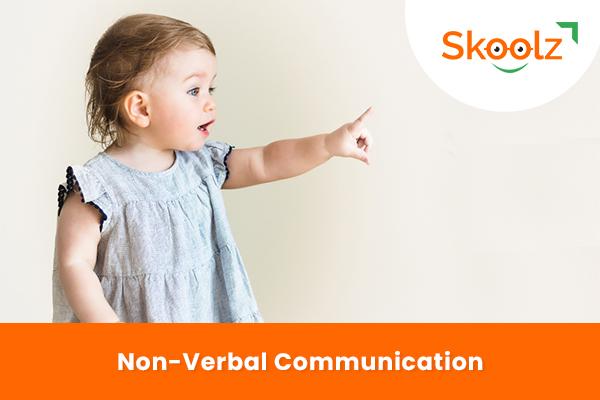
Before toddlers develop robust verbal language, they rely on non-verbal communication cues such as pointing, gesturing, facial expressions, and body language to express their wants, needs, and emotions.
3. Sentence Formation:
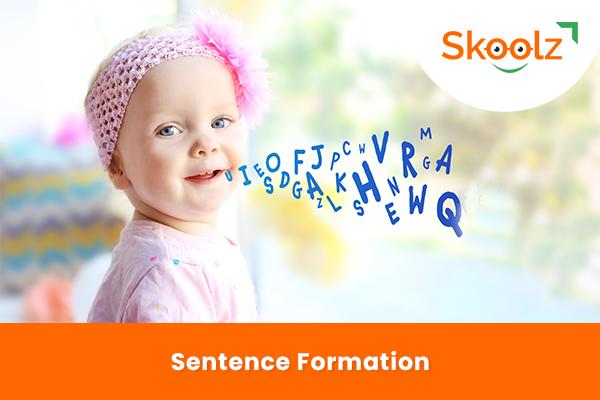
Toddlers progress from using single words to combining words into simple phrases and sentences. They learn to use grammar rules, including subject-verb agreement and word order, to convey their messages.
4. Articulation and Pronunciation:
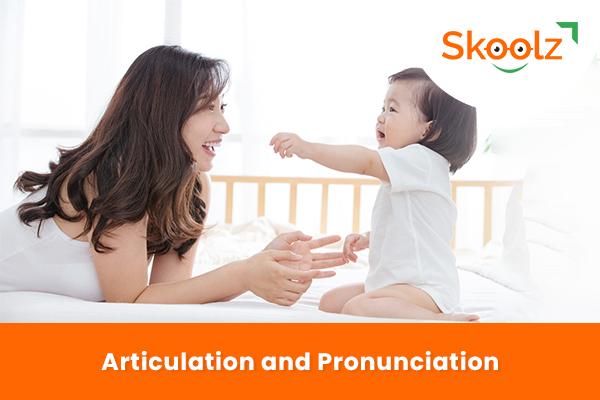
Toddlers continue to refine their speech sounds, working towards clearer articulation and accurate pronunciation. They imitate and model the speech they hear from caregivers and gradually develop clearer speech patterns.
5. Following Instructions:
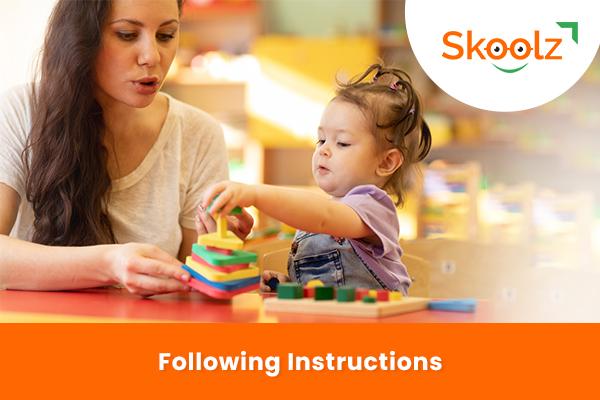
Toddlers begin to understand and follow simple instructions given by parents or caregivers. They learn to listen, process information, and carry out specific tasks or actions.
6. Expressing Needs and Desires:

As their language skills develop, toddlers become more adept at expressing their needs, wants, and desires. They use words or phrases to request objects, ask for help, or express preferences.
7. Turn-Taking and Conversation Skills:
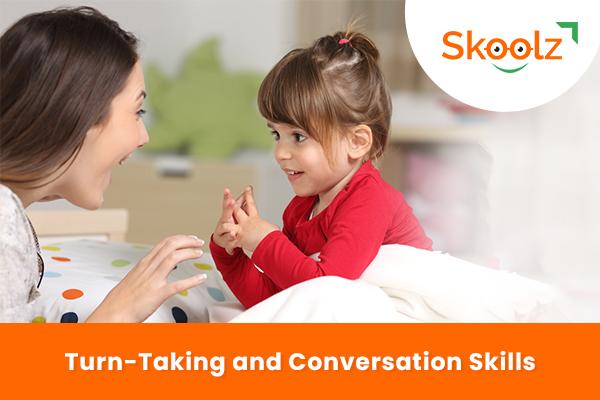
Toddlers learn the basics of turn-taking during conversations. They engage in back-and-forth exchanges, listen to others, and respond appropriately to maintain the flow of communication.
8. Understanding and Using Social Cues:
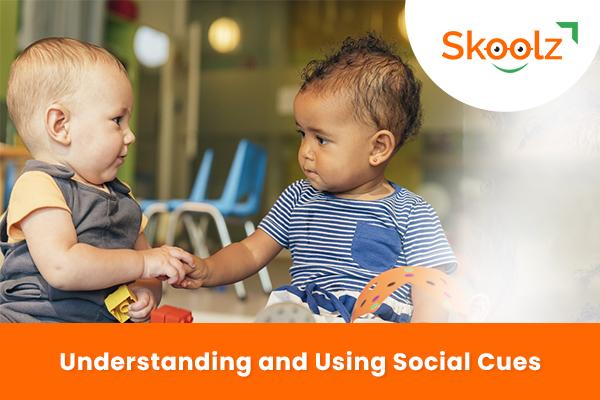
Toddlers start recognizing and interpreting social cues, such as tone of voice, facial expressions, and body language, to understand the intentions and emotions of others.
9. Asking and Answering Questions:
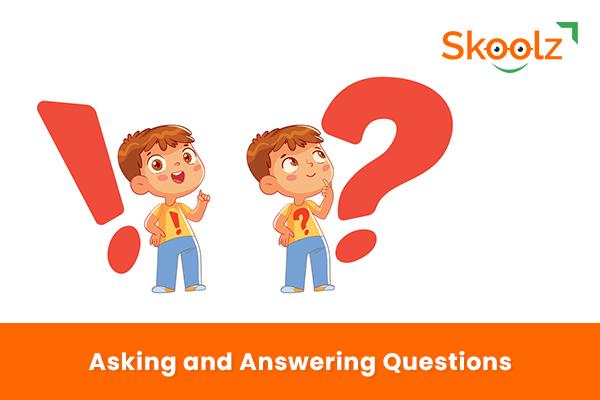
Toddlers learn to ask simple questions using question words like "what," "where," and "why." They also begin to answer questions by providing relevant information.
10. Storytelling and Narrative Skills:
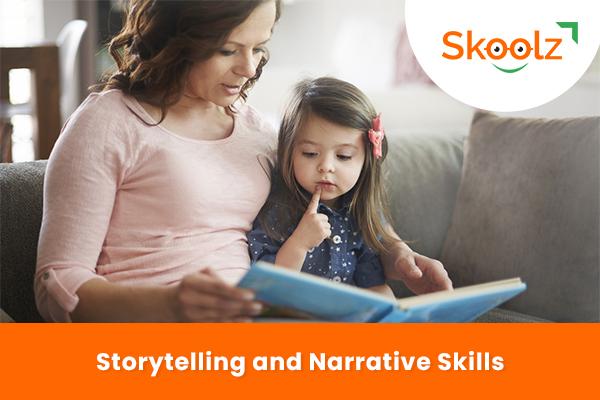
Toddlers develop an interest in storytelling and may attempt to retell events or narratives in their own words. They use their imagination and memory to construct simple stories.
Encourage communication skills in toddlers by engaging in conversations, reading books together, singing songs, and providing a language-rich environment. Respond positively to their attempts at communication and provide language models and opportunities for them to practice their skills. Remember to be patient and understanding as each child develops at their own pace.
The Importance of Communication Skills in Toddlers:
Effective communication skills play a fundamental role in a toddler's overall development.
Here are some reasons why these skills are essential:
1. Language Development:
Communication skills are closely tied to language development. By enhancing their ability to listen, understand, and express themselves verbally and non-verbally, toddlers build a solid foundation for further language acquisition and comprehension.
2. Social Interaction:
Communication is the key to successful social interaction. Toddlers who can effectively communicate their thoughts, needs, and emotions are more likely to engage in meaningful interactions, form friendships, and develop empathy and understanding towards others.
3. Emotional Expression:
Communication skills enable toddlers to express and regulate their emotions. By learning to communicate their feelings, they develop a greater sense of self-awareness and can seek support and comfort from caregivers and peers.
4. Cognitive Development:
Effective communication fosters cognitive development by promoting critical thinking, problem-solving, and the exchange of ideas. It helps toddlers organize their thoughts, make connections, and engage in meaningful conversations, enhancing their overall cognitive abilities.
Practical Strategies to Develop Communication Skills in Toddlers:
Here are some practical strategies to foster communication skills in toddlers:
1. Encourage Language-rich Environments:
Surround toddlers with a language-rich environment by talking, reading, and singing to them. Engage them in conversations, describing objects, actions, and emotions to expand their vocabulary and language comprehension.
2. Active Listening:
Practice active listening when interacting with toddlers. Give them your full attention, maintain eye contact, and respond to their verbal and non-verbal cues. This not only validates their communication but also models attentive listening behavior.
3. Use Visual Aids:
Visual aids such as pictures, gestures, and signs can enhance communication and comprehension. Incorporate visual cues during storytelling, teaching new words, or explaining concepts, allowing toddlers to connect visual representations with verbal communication.
4. Provide Opportunities for Conversation:
Create opportunities for toddlers to engage in conversation. Ask open-ended questions that encourage them to express their thoughts and ideas. Show genuine interest in their responses and extend the conversation by asking follow-up questions.
5. Role-Play and Pretend Play:
Role-play and pretend-play scenarios provide a platform for language development and communication. Encourage toddlers to engage in imaginative play where they can pretend to be different characters and interact with others, promoting language use and social interaction.
6. Read and Explore Books:
Reading books together exposes toddlers to new words, sentence structures, and narratives. Encourage them to participate by pointing at pictures, imitating sounds, and asking questions. This fosters language comprehension, vocabulary development, and storytelling abilities.
7. Emphasize Non-Verbal Communication:
Help toddlers understand and use non-verbal cues such as facial expressions, body language, and gestures. Demonstrate the meaning of different expressions and encourage them to express themselves non-verbally, promoting effective communication in various contexts.
8. Practice Turn-Taking:
Encourage turn-taking during conversations, games, or activities. This teaches toddlers the importance of listening to others and waiting for their turn to speak, fostering social skills and building patience.
Conclusion
Effective communication skills are essential for a toddler's holistic development. By creating a language-rich environment, actively listening, providing opportunities for conversation, and incorporating interactive activities, parents

Bhawana Mohane
Digital Marketer

Building Blocks of Communication: Nurturing Communication Skills in Toddlers
Communication skills are vital for toddlers as they navigate the world around them and interact with others. From expressing their needs to forming connections, effective communication lays the foundation for their social, emotional, and cognitive development. In this blog, we will explore the importance of communication skills in toddlers, discuss their benefits, and provide practical strategies to help nurture and strengthen these skills during this crucial stage of early childhood.
Communication skills play a crucial role in a toddler's development as they learn to express themselves, understand others, and engage in meaningful interactions.
Here are some important communication skills that toddlers typically develop during their early years:
1. Vocabulary Expansion:

Toddlers rapidly expand their vocabulary during this stage. They acquire new words and start using them to label objects, express their needs, and communicate their thoughts and feelings.
2. Non-Verbal Communication:

Before toddlers develop robust verbal language, they rely on non-verbal communication cues such as pointing, gesturing, facial expressions, and body language to express their wants, needs, and emotions.
3. Sentence Formation:

Toddlers progress from using single words to combining words into simple phrases and sentences. They learn to use grammar rules, including subject-verb agreement and word order, to convey their messages.
4. Articulation and Pronunciation:

Toddlers continue to refine their speech sounds, working towards clearer articulation and accurate pronunciation. They imitate and model the speech they hear from caregivers and gradually develop clearer speech patterns.
5. Following Instructions:

Toddlers begin to understand and follow simple instructions given by parents or caregivers. They learn to listen, process information, and carry out specific tasks or actions.
6. Expressing Needs and Desires:

As their language skills develop, toddlers become more adept at expressing their needs, wants, and desires. They use words or phrases to request objects, ask for help, or express preferences.
7. Turn-Taking and Conversation Skills:

Toddlers learn the basics of turn-taking during conversations. They engage in back-and-forth exchanges, listen to others, and respond appropriately to maintain the flow of communication.
8. Understanding and Using Social Cues:

Toddlers start recognizing and interpreting social cues, such as tone of voice, facial expressions, and body language, to understand the intentions and emotions of others.
9. Asking and Answering Questions:

Toddlers learn to ask simple questions using question words like "what," "where," and "why." They also begin to answer questions by providing relevant information.
10. Storytelling and Narrative Skills:

Toddlers develop an interest in storytelling and may attempt to retell events or narratives in their own words. They use their imagination and memory to construct simple stories.
Encourage communication skills in toddlers by engaging in conversations, reading books together, singing songs, and providing a language-rich environment. Respond positively to their attempts at communication and provide language models and opportunities for them to practice their skills. Remember to be patient and understanding as each child develops at their own pace.
The Importance of Communication Skills in Toddlers:
Effective communication skills play a fundamental role in a toddler's overall development.
Here are some reasons why these skills are essential:
1. Language Development:
Communication skills are closely tied to language development. By enhancing their ability to listen, understand, and express themselves verbally and non-verbally, toddlers build a solid foundation for further language acquisition and comprehension.
2. Social Interaction:
Communication is the key to successful social interaction. Toddlers who can effectively communicate their thoughts, needs, and emotions are more likely to engage in meaningful interactions, form friendships, and develop empathy and understanding towards others.
3. Emotional Expression:
Communication skills enable toddlers to express and regulate their emotions. By learning to communicate their feelings, they develop a greater sense of self-awareness and can seek support and comfort from caregivers and peers.
4. Cognitive Development:
Effective communication fosters cognitive development by promoting critical thinking, problem-solving, and the exchange of ideas. It helps toddlers organize their thoughts, make connections, and engage in meaningful conversations, enhancing their overall cognitive abilities.
Practical Strategies to Develop Communication Skills in Toddlers:
Here are some practical strategies to foster communication skills in toddlers:
1. Encourage Language-rich Environments:
Surround toddlers with a language-rich environment by talking, reading, and singing to them. Engage them in conversations, describing objects, actions, and emotions to expand their vocabulary and language comprehension.
2. Active Listening:
Practice active listening when interacting with toddlers. Give them your full attention, maintain eye contact, and respond to their verbal and non-verbal cues. This not only validates their communication but also models attentive listening behavior.
3. Use Visual Aids:
Visual aids such as pictures, gestures, and signs can enhance communication and comprehension. Incorporate visual cues during storytelling, teaching new words, or explaining concepts, allowing toddlers to connect visual representations with verbal communication.
4. Provide Opportunities for Conversation:
Create opportunities for toddlers to engage in conversation. Ask open-ended questions that encourage them to express their thoughts and ideas. Show genuine interest in their responses and extend the conversation by asking follow-up questions.
5. Role-Play and Pretend Play:
Role-play and pretend-play scenarios provide a platform for language development and communication. Encourage toddlers to engage in imaginative play where they can pretend to be different characters and interact with others, promoting language use and social interaction.
6. Read and Explore Books:
Reading books together exposes toddlers to new words, sentence structures, and narratives. Encourage them to participate by pointing at pictures, imitating sounds, and asking questions. This fosters language comprehension, vocabulary development, and storytelling abilities.
7. Emphasize Non-Verbal Communication:
Help toddlers understand and use non-verbal cues such as facial expressions, body language, and gestures. Demonstrate the meaning of different expressions and encourage them to express themselves non-verbally, promoting effective communication in various contexts.
8. Practice Turn-Taking:
Encourage turn-taking during conversations, games, or activities. This teaches toddlers the importance of listening to others and waiting for their turn to speak, fostering social skills and building patience.
Conclusion
Effective communication skills are essential for a toddler's holistic development. By creating a language-rich environment, actively listening, providing opportunities for conversation, and incorporating interactive activities, parents

Bhawana Mohane
Digital Marketer




